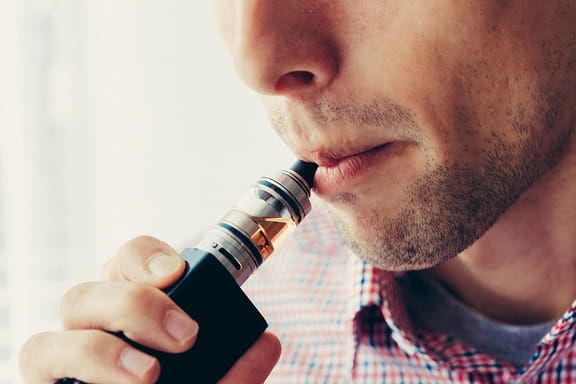Topics of Interest
Common issues explained.Covid Toothbrush Tips
- Never share your toothbrush with others.
- If you have had covid-19, change your toothbrush or brush head once you've recovered.
- When storing toothbrushes, keep the heads away from each other so they do not touch.
- Keep your toothbrush at a safe distance from the toilet.
- Always put the toilet lid down before you flush to avoid contaminating toothbrushes.
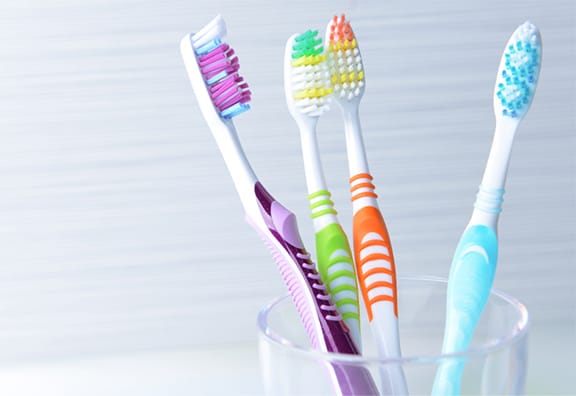
Bad Breath
What you eat affects the air you exhale. Certain foods, such as garlic and onions, contribute to objectionable breath odor. Once the food is absorbed into the bloodstream, it is transferred to the lungs, where it is expelled. The odors will continue until the body eliminates the food. People who diet may develop unpleasant breath from infrequent eating. If you don't brush and floss daily, particles of food remain in the mouth, collecting bacteria, which can cause bad breath. Food that collects between the teeth, on the tongue and around the gums can rot, leaving an unpleasant odor. Dry mouth occurs when the flow of saliva decreases. Saliva is necessary to cleanse the mouth and remove particles that may cause odor. Dry mouth may be caused by various medications, salivary gland problems or continuously breathing through the mouth. Tobacco products cause bad breath, so if you use tobacco, ask your dentist for tips on kicking the habit. Bad breath may also be the sign of a medical disorder, such as a local infection in the respiratory tract, chronic sinusitis, postnasal drip, chronic bronchitis, diabetes, gastrointestinal disturbance, liver or kidney ailment.

Bruxism
The involuntary grinding of your teeth while you sleep. Dental professionals call it BRUXISM (from the Greek word brukhein ‘gnash the teeth’). Bruxism can be intensified by medications or unusually high levels of stress and worry. Continual teeth grinding and jaw clenching will wear down teeth and eventually cause other serious health issues like gum recession, severe headaches, tooth loss or fractures. If bruxism is not managed, costly dental work will inevitably be necessary - restorative treatments like surgery, root canals, crowns or dental implants.
There is no cure for bruxism; nevertheless, the condition can be moderated. The most common procedure to help to alleviate pain and discomfort is a Nightguard.
Canker Sores
Canker sores are common in adults and children and generally tend to cause discomfort, particularly during eating. Although several factors have been named as possible "causes" of aphthous ulcers, trauma is the most common trigger for them. It has also been observed that they appear in patients who are under stress, or those experiencing health problems. They have also been attributed to hormonal changes, and to some types of dietary deficiencies (i.e., Vitamin B12, Iron, Folic Acid, etc.). Although there is no specific treatment for the ulcer itself, except for severe cases (where usually steroids are prescribed); treatment is usually focused on the pain caused by the ulceration.
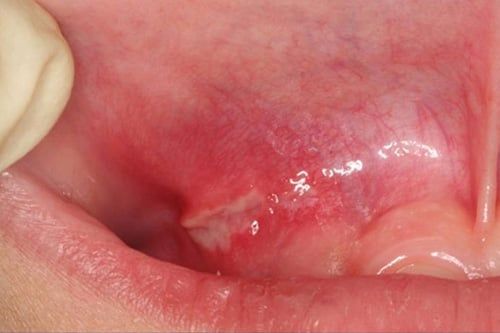
Dry Mouth
Saliva flow keeps the mouth moist and aids in chewing, swallowing, digestion and speech. Dry mouth is a condition from the lack of normal saliva flow.
- Dehydration
- Emotional stress
- Anemia
- Related to surgery
- Medical Conditions
- Medication
- Allergy
- Anti-depressant
- Blood pressure
- Some mouth washes that are high in alcohol content
- Mouth feels sticky
- Lips cracked and dry
- Tongue may have burning sensation
People who experience dry mouth are at high risk for developing cavities, gum disease and bad breath.
- Chewing gum / lozenges
- Humidifier at night
- Maintaining good oral hygiene
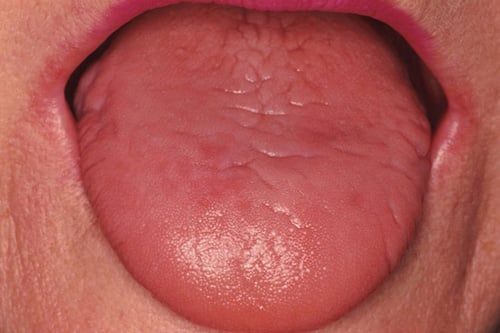
Mouth Guards
Accidents can happen during any physical activity. A mouth protector can help protect the soft tissues of your tongue, lips and cheek lining. Over-the-counter stock mouth protectors are inexpensive, pre-formed and ready-to-wear. Boil and bite mouth protectors offer a better fit than stock mouth protectors. Softened in water, they are more adaptable to the shape of your mouth. Custom-fitted mouth protectors are made by your dentist for you personally. They are more expensive, but a properly fitted mouth protector will stay in place while you are wearing it, making it easy for you to talk and breathe.
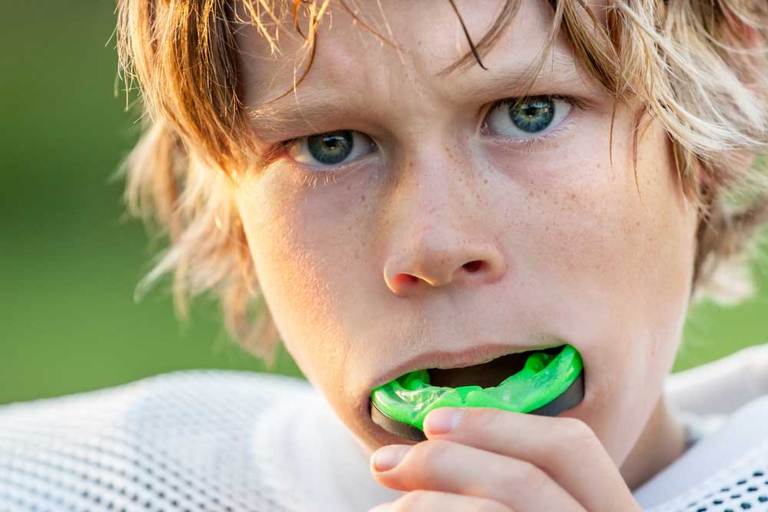
Pregnancy
We ask that our female patients who are pregnant or think they possibly could be to inform us prior to your x-ray examination and dental treatment.

Tobacco
You are probably familiar with the links between tobacco use and lung disease, cancer and cardiovascular disease.
Current studies have also established that tobacco smoking not only causes direct damage to your mouth but also makes periodontal disease more damaging and harder to treat.
There is a greater incidence of calculus formation on teeth, deeper pockets between gums and teeth, more gum recession and more loss of the bone that hold the teeth in your mouth. In addition, smokeless tobacco greatly increases your chance of developing oral cancer. Any tobacco usage can complicate the placement of dental implants.
Chemicals in tobacco such as nicotine, which constricts blood vessels, slow down wound healing.
Other chemicals impair the function of your white blood cells which are your first line of defense against infection. The tars contain carcinogens which over time induce cell mutations and cancers.
Quitting tobacco use will lower the risk of your developing cancer and improve the health of your teeth and gums, as well as your heart and lungs.
Smokeless tobacco poses very serious problems including:
- Causes tooth decay
- Eats away your gums
- Leads to tooth loss
- Bad Breath
- Stains your teeth
- Causes oral sensitivity to hot and cold
- Decreases sense of taste and smell
If oral cancer is left untreated long enough, it may even cause death.
Tooth Fractures
There are many types of cracked teeth. The treatment and outcome for your tooth depends on the type, location and severity of the crack.
Unlike a broken bone, a fracture in a cracked tooth will never heal. Early diagnosis is important, even with high magnification and special lighting, it is sometimes difficult to determine the extent of a crack.
A crown will bind and protect the cracked tooth. When a crack reaches the tooth root, root canal treatment is frequently needed to treat the injured pulp. A cracked tooth that is not treated will progressively worsen, eventually resulting in the loss of the tooth.
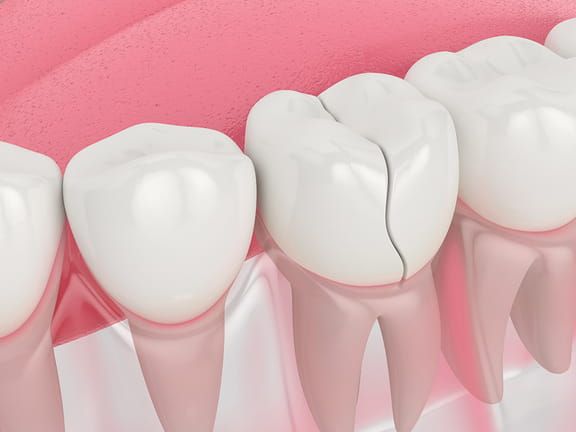
Traumatic Ulcer
It is not uncommon for children to inadvertently "bite" on their lips or cheeks, particularly following a dental visit where local anesthetic was used. The main reason why this occurs is the natural curiosity that a child has about the area of the mouth that is "numb." We try our best to explain to children that local anesthesia is temporary and we give them (and their parents) instructions on how to prevent "lip biting." In the event that this occurs, please notify our office so we can determine if your son or daughter will require treatment (i.e. antibiotics or pain medicine).
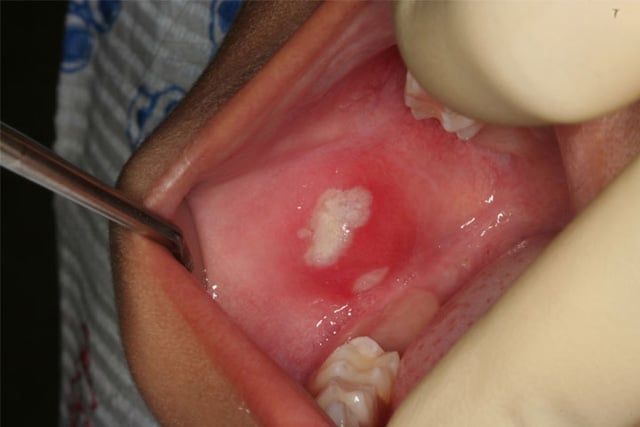
Vaping
Vaping has been known to cause serious complications linking to oral health, comparable to smoking cigarettes. Similarly to smoking, vaping can cause gum disease, tooth decay and other more serious conditions beyond just the mouth. There have also been situations in which the vape pen itself has exploded causing serious harm to teeth, gums and the lips.
The nicotine found in the vapor can cause restrictions that reduce blood flow, oxygenation, and saliva production. All of these things are needed to help produce and distribute proper nutrients within the body. In turn, these restrictions can lead to periodontal disease, dry mouth, cavities and even tooth loss.
Aside from oral health, when you vape, the vapors that are inhaled contain nicotine, which is highly addictive (as we know with cigarettes), heavy metal particles, and other cancer-causing chemicals. None of the items that were previously listed mix well when inhaled into your lungs. Therefore, damage can occur as well as lung infections, cancer and even an increased risk of heart disease.
